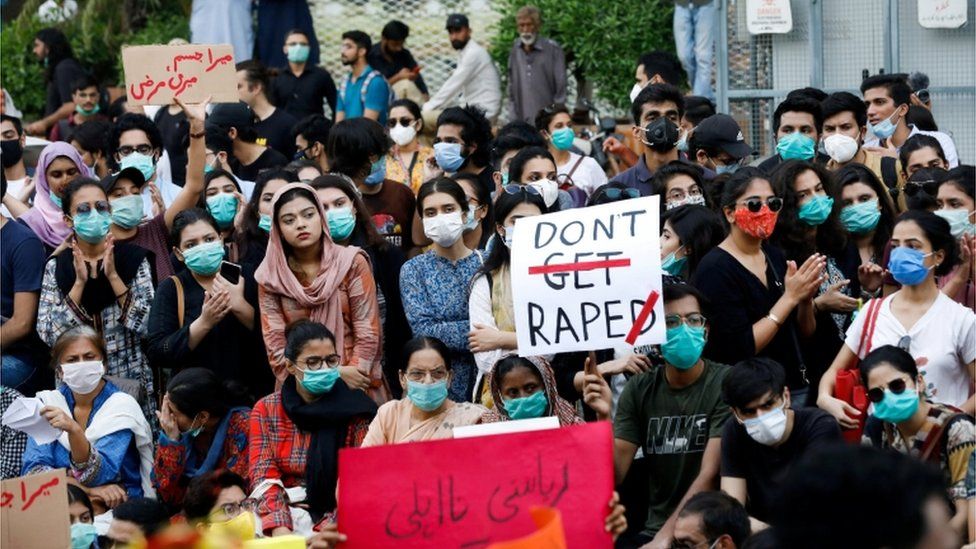The death of Noor Mukadam in Pakistan has sparked renewed protests by women in the country. The young woman was found decapitated, tortured and wounded with stab wounds in her Islamabad home, and police arrested a man, his parents and domestic workers last week. They are all suspected of murdering the woman or helping to destroy evidence.
The case once again drew the attention of the public and especially women to the major problem of patriarchal violence that exists in Pakistan. Vigils and solidarity actions were held nationally and internationally. Calls are also being made to better protect women with laws. Nevertheless, the question is also being asked whether the quick arrest of the alleged perpetrators and the wide publicity is related to the fact that Noor's father is a former diplomat and that she lived in a rich neighbourhood.
This is the second time this year that women have taken to the streets. Already in April, Preminier Imran Khan had caused anger when he claimed that wearing a veil would protect women from sexual assault. He warned that a "vulgarity and obscenity" would spread in society and that there would be repercussions. By repercussions, he meant rape and other violence against women. Khan quickly backtracked after human rights organisations criticised him harshly for this. According to a study by a charity organisation, 1500 children were officially sexually abused in Pakistan in the first six months of 2020 alone. At least 11 cases of rape are reported per day, 22,000 cases in the last six years, of which the perpetrator was convicted in only 77 cases.

